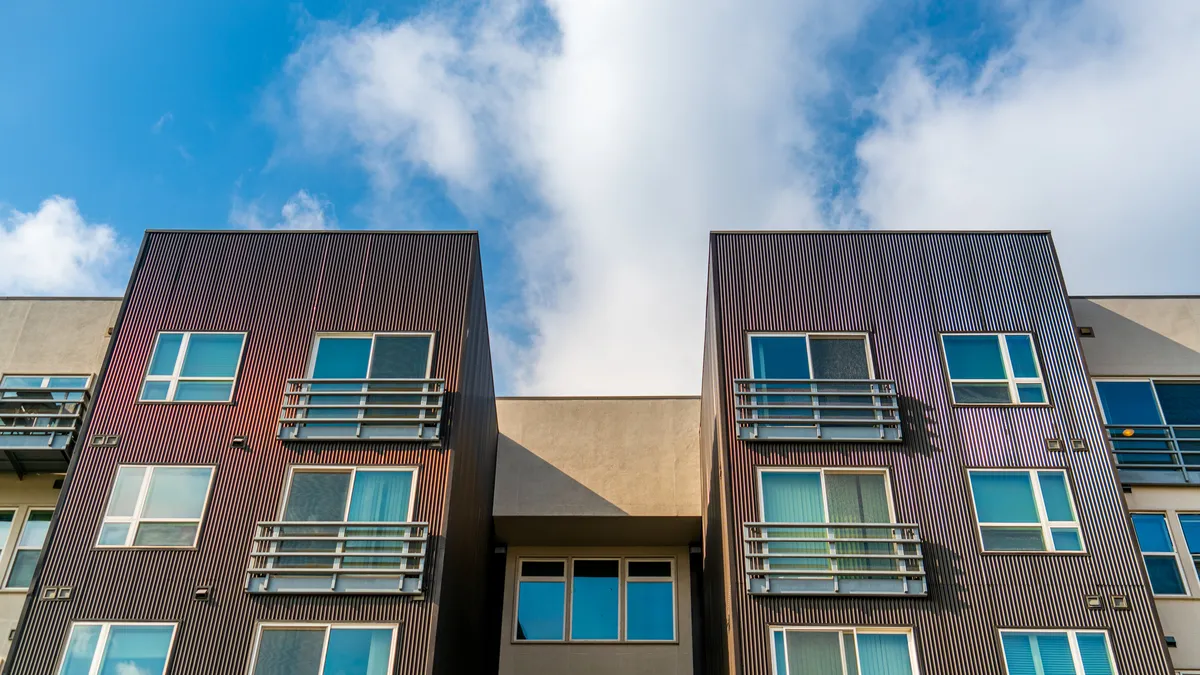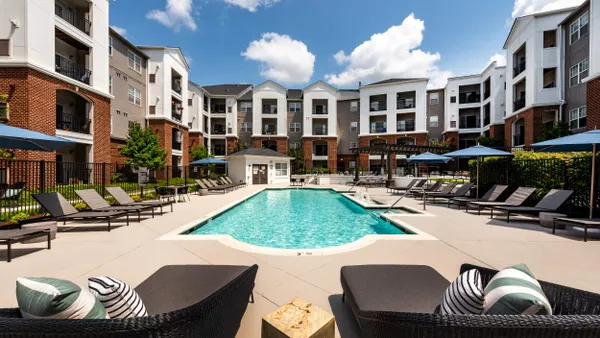Dive Brief:
- Apartment transaction volume fell 74% year over year to $11.4 billion in November, marking the third straight month of double-digit declines, according to a report that data firm MSCI Real Assets shared with Multifamily Dive.
- To beat 2021’s numbers, MSCI said December’s sales, which should be published later this month, would have to hit $81 billion. While December tallied $88 billion in transaction volume in 2022, closing deals is much more difficult than a year ago.
- The pace of single asset transactions, which fell 69% to $8.8 billion, is now below 2021’s level. Entity-level transactions dropped 84% to 2.6 billion.
Dive Insight:
Through the first 11 months of 2022, apartment volume was still ahead of 2021, but only slightly. MSCI attributes the strong overall numbers to entity-level transactions, like New York City-based Blackstone buying Austin-based student housing REIT American Campus Communities earlier in the year. Without those transactions, 2022’s deal volume would have been below 2021.
Even with the steep dropoff, prices rose 7.4% YOY for all apartments. Despite year-over-year increases, price growth is slowing and bid-ask gaps remain between buyers and sellers. So, unless an owner is under pressure to sell, it won’t.
Until apartment executives get a feel for where interest rates are headed, the spread between buyer and seller expectations will remain and transactions will probably be limited in 2023. “Hopefully they begin to emerge in the first quarter or second quarter,” said Ryan Davis, CEO of Dallas-based consulting group Witten Advisors.
During the Great Recession, some highly leveraged developers were forced to sell. But Davis said builders have less debt and longer loan terms this time around.
“There are going to be some instances where there's a balloon payment coming due and you’ve just got to sell for whatever price,” Davis said. “But for the most part, companies can just say, ‘Hey, we're fine right now. There's no reason to take a major cut in terms of the price that we think we could get for this asset.’”
But others think price declines could be on the horizon as apartment owners with floating-rate debt are forced to refinance their assets.
“I certainly think anybody who has floating rate debt, whether it's a construction loan or agency debt, is going to face problems,” said Bobby Lee, CEO of Los Angeles–based apartment owner JRK. “Their interest rate is going from 2.5% to 3% to 6.5% or 7%.”
Click here to sign up to receive multifamily and apartment news like this article in your inbox every weekday.










